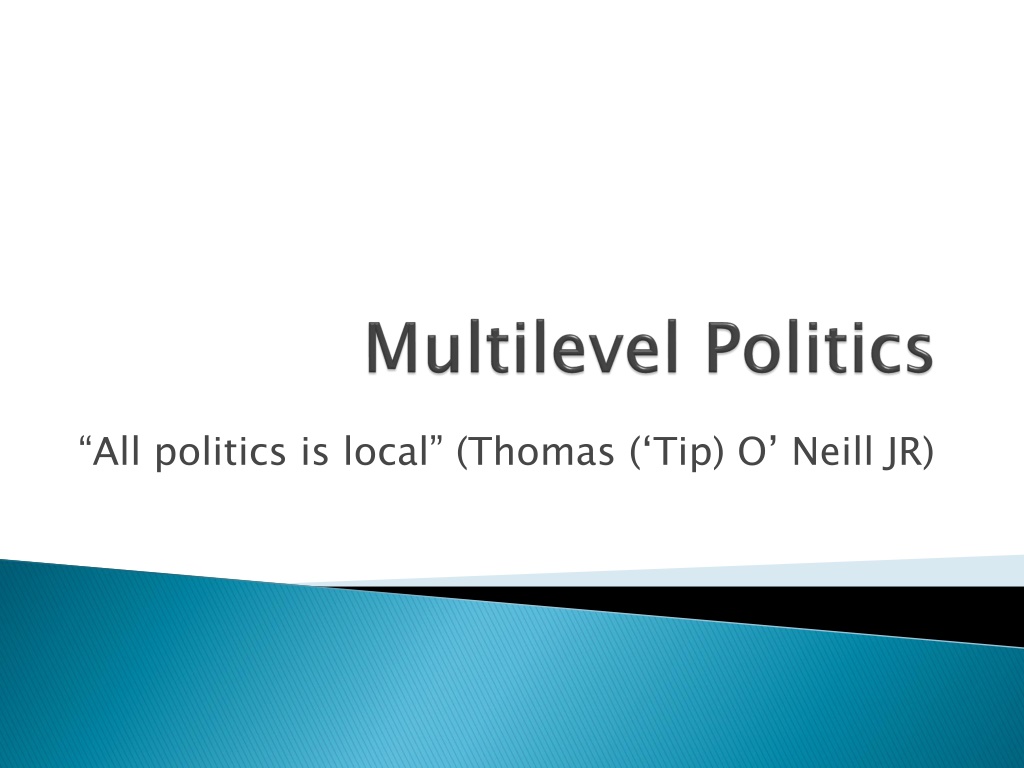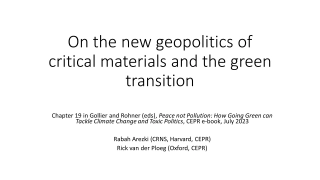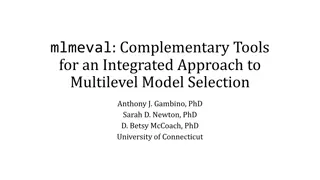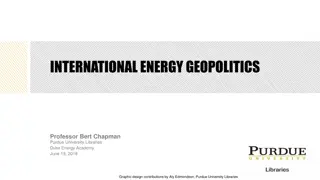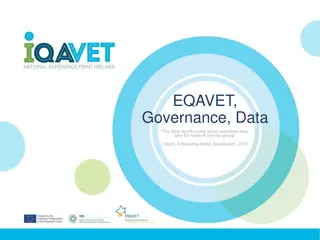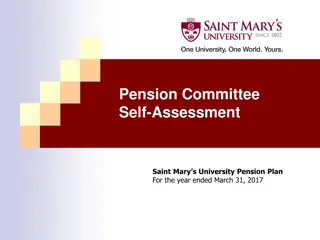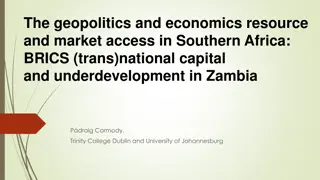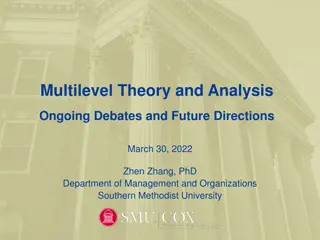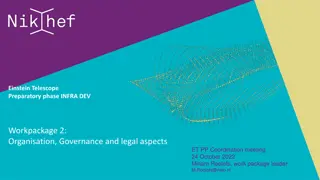Geopolitics and Multilevel Governance
Geopolitics analyzes state actions based on geography, while multilevel governance shares sovereignty between central and state governments, dividing tasks among states. Explore these concepts and their impact on global politics."
Download Presentation

Please find below an Image/Link to download the presentation.
The content on the website is provided AS IS for your information and personal use only. It may not be sold, licensed, or shared on other websites without obtaining consent from the author.If you encounter any issues during the download, it is possible that the publisher has removed the file from their server.
You are allowed to download the files provided on this website for personal or commercial use, subject to the condition that they are used lawfully. All files are the property of their respective owners.
The content on the website is provided AS IS for your information and personal use only. It may not be sold, licensed, or shared on other websites without obtaining consent from the author.
E N D
Presentation Transcript
Geopolitics is an approach to foreign policy analysis that understands actions, relationships and significance of states in terms of geographical factors. Geographical factors: location, climate, physical terrain, and population. The advance of globalization is sometimes seen to have made geopolitics obsolete.
Who argued that the state that controls the seas would control world politics Halford Mackinder (1861-1947) Who suggested that control of the land mass between Germany and central Siberia is the key to controlling world politics. Alfred Mahan (1840- 1914)
Emerges when experts from several tiers of government share the task of making regulations and forming policy. Wider range of actors involved not only local or regional governments but also interest groups more point of access and influence for private groups. Vertical cooperation rather than horizontal for a policy area Political representatives more power and authority, but interest group experts more knowledge and ability to judge about problem. Communication still operates in a constitutional framework for limits and opportunities.
Is the principle of sharing sovereignty between central and state (or provincial) governments. A form of multilevel governance with a constitutional device. For examples: -diverse religion in Lebanon. -US - Germany (doc)
Is any political system that puts this idea into practice. Divides the tasks among the states and is in charge of external relations. The states are represented in government as an upper assembly. Some federations are less balanced: some states are given more autonomy than others: Risk of instability.
Two ways:-Creating a new central threat. -Transferring sovereignty from an existing government to lower levels.
Is a looser link between participating countries, with the members retaining their separate statehood. More than a alliance less than a federation Example of US: weak centre with a lack of direct authority.
Nation and state governments operate independently with each tier acting autonomously in its own sphere and linked only through the constitutional compact. Coordination not necessary or not feasible(=opposite of multilevel governance) Example: US Collaboration between levels: national and state governments as partners Solidarity: a share commitment to united society, moral form. Example: Germany Dual federalism Cooperative Federalism
Strength A practical arrangement of large countries Provides additional checks and balances Reduces overload at the centre Strength Weakness May be less effective in responding to security threats (e.g. terrorism) Decision-making is slow and complicated Can entrench divisions between provinces The centre experiences greater difficulty in launching national initiatives. How citizens are treated depend on where they live -Unclear accountability to the public -May permit majorities within a province to exploit minority Weakness Provides competition between provinces and allows citizens to move between them. Offers opportunities for policy experiments Allows small units to cooperate in achieving the economic and military advantages of size. Brings government closer to the people Basing representation on provinces violates the principle of one person, one vote.
Sovereignty lies exclusively with the central government The central government can give subnational administrative. National legislature has mostly only one chamber: second chamber for representing the provinces not needed Common in smaller democracies without strong ethnic divisions. Three abroad ways in which a unitary state can disperse power from the centre:
Deconcentration: spreads the works, movement of central government employees away from the capital. Decentralization: central government functions are executed by subnational authorities Devolution: centre grants decision-making autonomy to lower levels.
